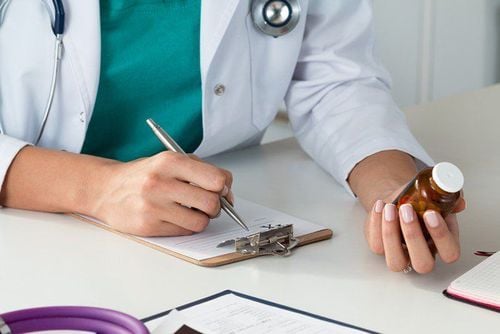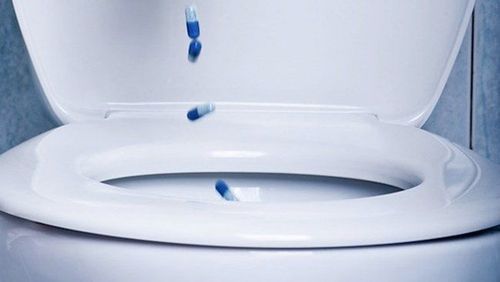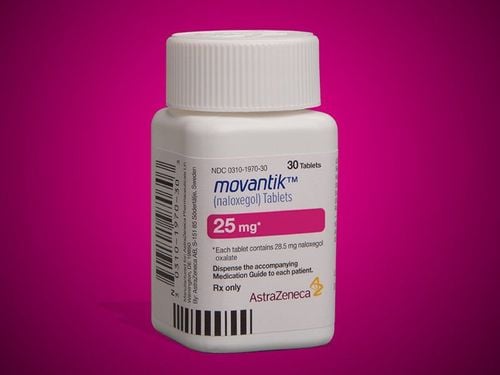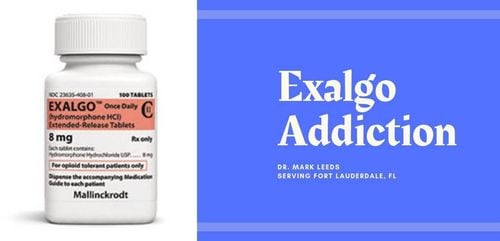This is an automatically translated article.
Whenever holding a new prescription, anyone needs to know the basic information of the drug, its uses and usage. Especially with specific drug groups such as codeine, hydrocodone, oxycodone, opioid pain relievers... you need to discuss with your doctor more carefully. So what should you ask?
1. Why use this medicine - is it really suitable?
First, the patient should share his or her pain with the doctor. The process of asking about medical history, clinical examination and prescribing medication will follow. However, you should ask the doctor questions about the prescription such as: “What medications am I taking? How long does it take for the situation to improve? If this is an opioid, are there any non-opioid options that can help me with my pain as I recover?”
Opioid pain relievers have been approved by the US Food and Drug Administration (FDA) for use in the treatment of a number of acute and chronic pain conditions. However, taking opioids can also come with some very serious side effects. If your doctor still thinks that only prescription opioids can solve your pain, ask:
2. How long do you need to take Opioids?
Because of some of the possible side effects of opioids, find out when it's right to stop taking, or reduce, the dose. Patients should ask their doctor to prescribe an Opioid containing the lowest dose and the smallest amount possible that still ensures the corresponding pain relief effect. At the same time, maintain monitoring of the effectiveness of the drug during use.
3. How to reduce the side effects of drugs containing Opioids?
To avoid or reduce the side effects of Opioid pain relievers, take them exactly as prescribed and directed by your doctor. If you still feel pain, inform your doctor and do not overdose on your own.
Learn how to identify serious side effects (for example, excessive sleepiness or feeling like you need to take more medicine) so you and your family know when to call your doctor or go to the hospital.

Người bệnh nên dùng thuốc theo đúng chỉ định và tư vấn của bác sĩ
4. What if I have a history of addiction?
If you (or anyone in your family) have a history of substance abuse, alcohol, tobacco or drug abuse...tell this to your doctor for specific instructions on how to take the medication. Opioids. Sometimes, some prescription adjustments can be made if you are showing signs of addiction.
5. What if I am taking other medicines?
Before receiving any prescription, patients should tell their doctor about all medications they are taking, especially those for anxiety, sleep problems or seizures. Even drugs taken infrequently can interact with opioids. To avoid unwanted side effects, ask your doctor about possible drug interactions.
6. How should I store Opioids?
If your family has children - from toddlers to teenagers - it is best to prepare a locked medicine cabinet to store medicines. Even a moderate dose of an adult opioid can be an overdose and fatal in young children. In addition, youth and other household members, or visitors, may find and use it for non-medical purposes. Please store the medicine carefully to avoid unauthorized use by others.
7. How to deal with opioids that are no longer in use?
Do not store leftover medicine in case you have more pain later. Residual opioids can be targeted by people you don't expect them to take, like friends, loved ones, or even young children. If a refund is not possible, the FDA has a list of opioid pain relievers that can be flushed down the toilet when not needed. This way there will be no unwanted situations happening.

Một số loại thuốc nhóm Opioid có thể xả xuống bồn cầu khi không cần thiết
8. Can I share this prescription with others?
No. Your prescription is for you. Before prescribing a drug, doctors have to consider many factors, from pain, medical history, correlation with other drugs you are taking.... Therefore, a prescription is considered a prescription. What's right for you may be an overdose for someone else.
9. Do I need a backup of Naloxone?
You can discuss with your doctor whether to take extra backup of Naloxone - a drug to support in case of Opioid poisoning or overdose, even to save lives in an emergency. In many cases, you can prepare for potential problems by keeping extra Naloxone in your home.
Conclusion
In general, the Opioid analgesic group has the advantages of high effectiveness, rapid pain relief, but also potential risks such as overdose, improper use... Therefore, patients should Prepare basic knowledge about Opioid-containing drugs before receiving prescriptions. Please take the time to ask your doctor or anyone else with expertise in the above questions before using this medicine in treatment.
Please dial HOTLINE for more information or register for an appointment HERE. Download MyVinmec app to make appointments faster and to manage your bookings easily.
Reference source: Fda.gov












